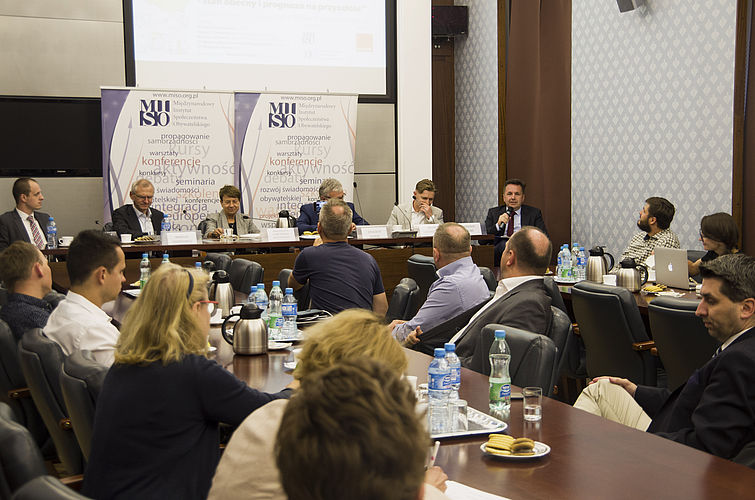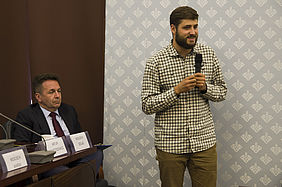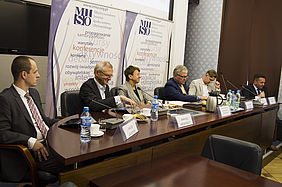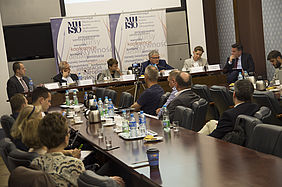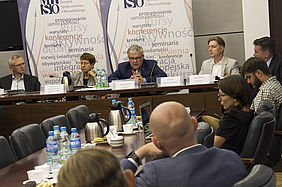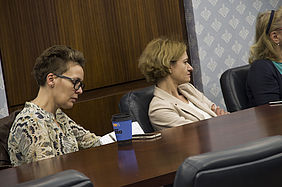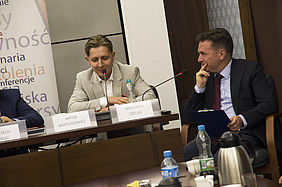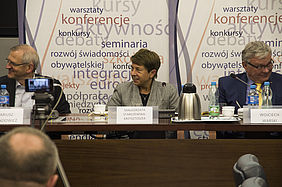The speakers were Artur Bartoszewicz, PhD (Warsaw School of Economics), Mariusz Grendowicz (an economist and banker), Maciej Lachowski (Ministry of Investment and Development), Małgorzata Starczewska-Krzysztoszek, PhD (Economic Sciences Department, University of Warsaw) and Wojciech Warski, PhD (Business Centre Club); the discussion was moderated by Wojciech Szeląg (Polsat television).
The panellists were divided in their assessment of the Polish economy’s current condition and in their forecasts. The most commonly expressed fears were: insufficient exploitation of the potential afforded by the very good global expansion, and insufficient growth in investment by small businesses. The experts were also divided on how to effectively introduce new technologies and provide financial support for Polish startups.
An analysis of the situation of small businesses was the starting point for the discussion. The insufficient growth of investments is disturbing, after a strong decline in 2016. “More than 70% of GDP comes from enterprises; they’re the ones who add value, but today enterprises aren’t investing, and without that we’ll fail,” said Starczewska-Krzysztoszek. Grendowicz noted an interesting correlation: the closer discussions of finance get to the subject of our particular market, the more the questions concern microeconomics, and few people ask about the macro situation. Rising legal uncertainty may also cause concern. Warski of the Business Centre Club said a campaign against entrepreneurs is under way, in particular by questioning their honesty, and in such conditions all incentives to invest disappear. Lachowski in turn said the Strategy for Poland, confirmed by the World Bank, which forecasts steady investment growth of 3.6% through 2020, positively assesses the condition of Poland’s economy and bodes well for the future.
The experts agreed that today we are seeing positive trends in the economy: The statistics look good, inflation is low and the economy is growing. “But we’re not aware of the scale of dependence on EU funds: as much as 60% of public investments are made with EU contributions”, said Bartoszewicz. “Some investment was artificially driven by the desire to get EU subsidies. After a reduction in EU funding for Spain, the country suffered a drop in investment, a shifting of the burden onto the state and as a result a decline in development. Poland may encounter the same fate”.
An innovative economy: the forecast for the future?
During the debate, a great deal of time was devoted to the subject of using new technologies. The panellists agreed on the need to invest in them and to introduce them into the economy. Institutional support for startups is an issue that needs to be resolved. Some pointed out that the assessment of new companies is often based on the opinions of people who are not entire competent in these areas, meaning financing is allocated ineffectively.
The debate was organised by the International Civil Society Institute and KIG’s Social Dialogue Committee, with Orange Polska as a partner.


